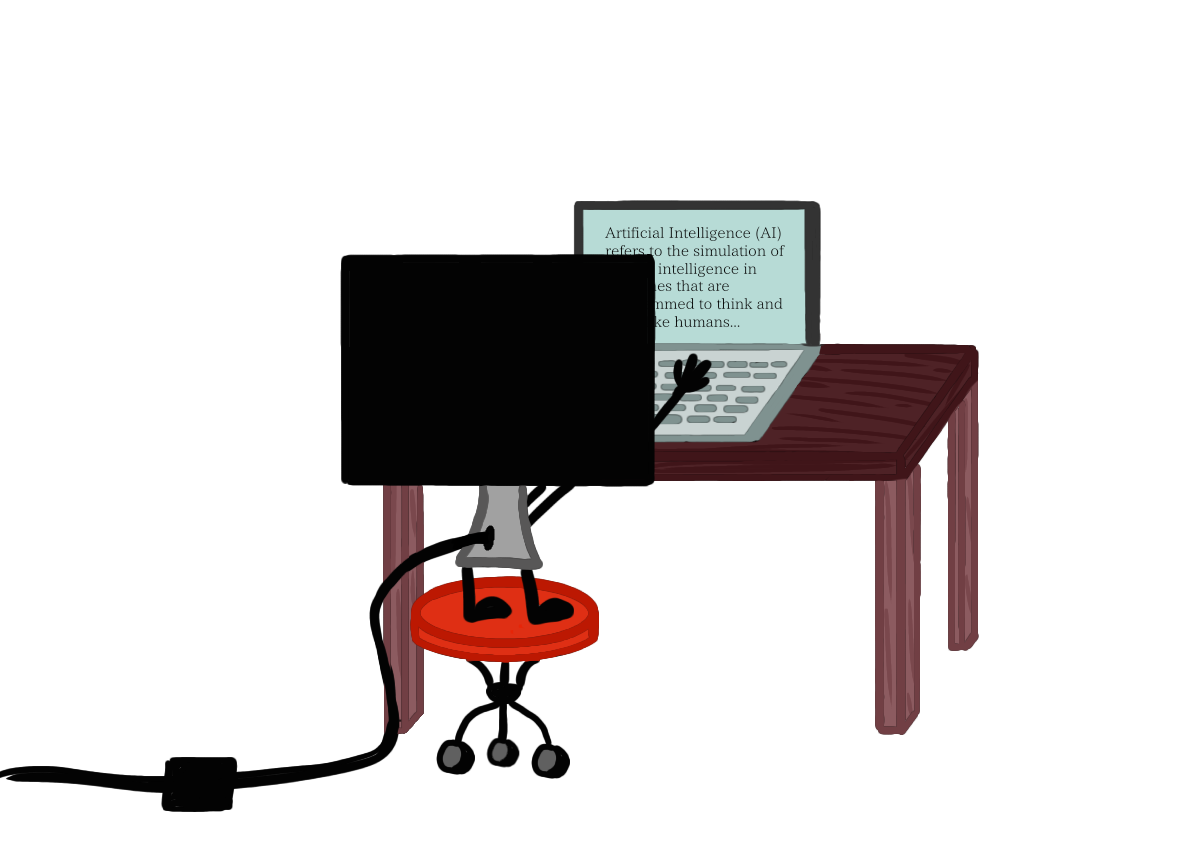
“In the hallowed halls of education, where the pursuit of knowledge meets the challenge of engaging young minds, a quiet revolution is taking place. Welcome to the era of ChatGPT in the school environment, where the boundaries of traditional teaching and learning are rapidly expanding to embrace the transformative power of artificial intelligence.”
While this introduction may seem well written with its intricate vocabulary and enticing information, it can come off as pretentious and insincere. This is due to the fact that it was written by the Artificial Intelligence (AI) chatbot, ChatGPT.
Many teachers may worry that AI can interfere with a student’s learning due to its accessible potential to be used for cheating, but several have said otherwise.
“I think there’s a possibility for students looking at ChatGPT generated text and looking at it critically, like what it does well, and what it doesn’t do well. That’s one way I could see [students] using it,” History and English teacher, Adam Williams, said.
This largely unexplored idea of using ChatGPT as a tool for analysis could lead to improvements in students’ learning, something most wouldn’t expect from an AI chatbot. Despite some teachers having positive opinions about ChatGPT, not all do. When asked about the possible functionality of ChatGPT, English teacher Shannon Ward was less convinced of its usefulness.
“I feel like we could use our time more meaningfully not using ChatGPT.”
– Shannon Ward
English Teacher
“I feel like we could use our time more meaningfully not using ChatGPT. I would rather spend my time teaching my students how to write well so they feel like they don’t need to use [the AI],” Ward said. “We have made it this far in the history of our society without using ChatGPT, that I feel as though it is important that we maintain our personal completion of our own work.”
When a lot of people think of ChatGPT, their minds could go to students in a classroom using it as an easy out on their essay assignments, but that is not always the case. When asked about its potential uses, senior Holden Martinez claimed that its uses can span more than just cheating.
“You can use [ChatGPT] to generate an essay and then you can use it as inspiration to help get some ideas out,” Martinez said.
However, not every student agrees with this.
“[ChatGPT] is just recycled ideas; you can find original sources that are more useful and write your own things, rather than getting ideas from ChatGPT,” senior Nicholas Di Pasqua said.
There are many opinions on ChatGPT between both students and teachers. Despite this, when it comes to San Marin students and their learning, there are precautions that can be taken.
“I think that whatever happens with Chat GPT, what we should be doing is thinking critically about… what its function within society is.”
– Wesley Swedlow
Philosophy teacher
“I think that whatever happens with ChatGPT, what we should be doing is thinking critically about what AI does, how it does it, and what its function within society is and may become,” philosophy teacher Wesley Swedlow said. “And then we do what we often do with things that are uncertain: we create a whole environment of ignorance, and then students fill that hole with whatever they want.”





































